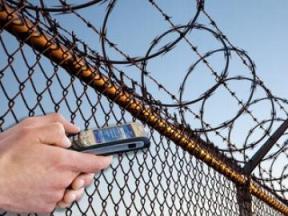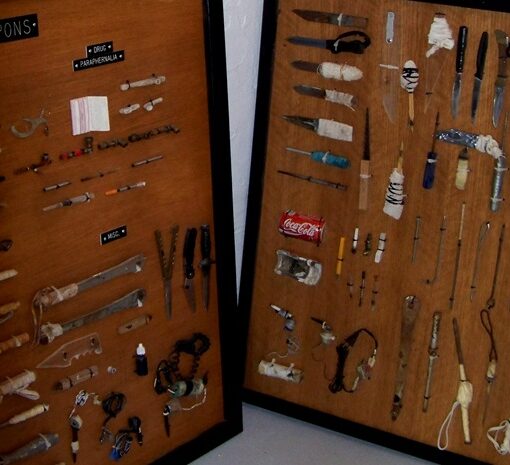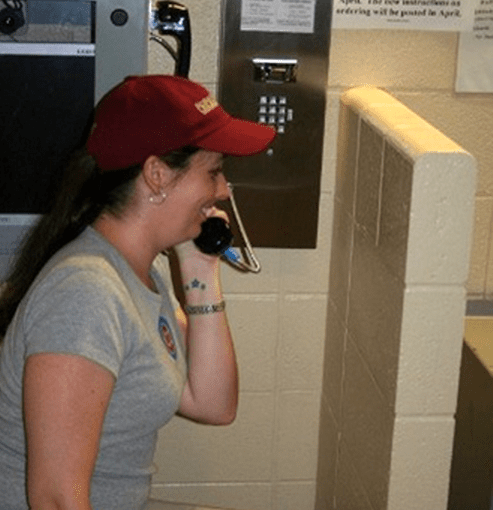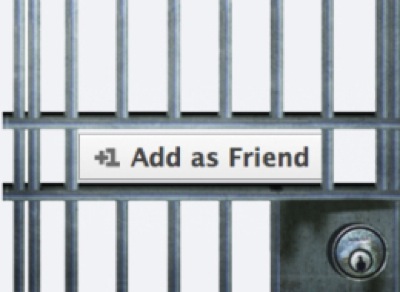 The California legislation making the possession of contraband prison cell phones a crime has been approved in committee. Will this stop the flow of smuggled cell phones into jails? Has the fact that drugs are illegal stopped them from being smuggled in to jails and prisons across the country?
The California legislation making the possession of contraband prison cell phones a crime has been approved in committee. Will this stop the flow of smuggled cell phones into jails? Has the fact that drugs are illegal stopped them from being smuggled in to jails and prisons across the country?
Senate Bill 26, authored by Senator Alex Padilla (D-Pacoima), was approved by the Assembly Public Safety Committee today on a unanimous bipartisan vote. SB 26 would crack down on the smuggling and use of cell phones and other wireless communication devices in California prisons. The bill includes tough penalties for both smugglers and inmates. Current law does not provide any criminal or financial sanctions for smuggling cell phones to inmates.
“It is time for California to crack down on cell phones in prisons. Forty-four states and the federal government have taken action to tackle this problem in their prisons. California, where the problem is most severe, should take action as well,” said Senator Padilla. “We know that inmates with cell phones are ordering murders, organizing escapes, facilitating drug deals, controlling street gangs, and terrorizing rape victims,” he added.
Senator Padilla has had the strong support of the California Department of Corrections and Rehabilitation (CDCR) in his effort to address the problem of cell phones in California’s prisons. “Contraband cell phones in prison continue to be a problem for CDCR as they allow inmates to circumvent our monitoring process and commit crimes,” said CDCR Secretary Matthew Cate. “This year we have confiscated 6,000 phones through May at our prisons. We are pleased that the Public Safety Committee has approved Senate Bill 26, as it will strengthen our efforts to curb this problem,” he added.
SB 26 would do the following:
Smuggling
- Any person, employee or nonemployee, who possesses a cell phone with the intent to deliver, or delivers, to an inmate is guilty of a misdemeanor, punishable by six months in jail and a fine of up to $5,000 per device.
Inmate Possession
- An inmate in possession of a cell phone shall be subject to loss of time credits. Lost time credit will not be eligible for restoration.
Visitor Protection
- The bill contains language for visitors who inadvertently bring a cell phone into a prison without intent to deliver to an inmate.
Managed Access Technology
- Prisons will use technology to identify unauthorized cell phone signals and block their ability to transmit phone calls, texts, and emails.
The number of cell phones confiscated in our prisons has grown exponentially. In 2006, prison officials confiscated 261 cell phones in California prisons. In 2009, 6,995 cell phones were confiscated. Last year, 10,761 phones were confiscated. Charles Manson has been caught twice in possession of a cell phone. Smugglers are selling these phones to inmates for more than $1,000 a piece. One person who was caught, bragged about making $100,000 in a single year smuggling cell phones to inmates.
SB 26 is Senator Padilla’s third attempt to criminalize cell phones in prison. SB 1730 introduced in 2007, and SB 434 introduced in 2009, both died in committee. SB 525 introduced in 2009, won legislative approval in 2010 but was vetoed by Governor Schwarzenegger.
Cell phones in the hands of inmates are a clear and present threat to the safety of correctional officers, inmates, and the public. Cell phones in prisons have been used by inmates to:
- Control street gangs. On August 31st, 2010, Attorney General Brown announced the arrest of
four Nuestra Familia gang leaders and 30 gang members. The gang is believed to be controlled by imprisoned gang leaders that use cell phones to direct illegal activity throughout the state. (source)
- Coordinate with drug traffickers from inside prison cells to plan murders, kidnappings, and drug deals (source)
- Order a “hit” on a murder witness in Maryland (source)
- A Texas death row inmate threatening a legislator (source)
- Coordinate simultaneous rebellions in 73 prisons in Sao Paulo, Brazil in 2006 and, more ominously, coordinate attacks on law enforcement in the streets. These criminal acts essentially shut down Brazil’s financial capitol for days (source)
- Plan escapes, such as one in Texas in March (source)
- Threaten and intimidate witnesses and victims (source)
- Coordinate attacks on prison guards (source)
SB 26 is supported by the California Correctional Peace Officers’ Association, US Senator Diane Feinstein, California Peace Officers’ Association, California Police Chiefs Association, California State Sheriffs’ Association, Crime Victims United, California Partnership to End Domestic Violence, and the California District Attorneys’ Association, among others.
- Blockchain System for Compliant Inmate Transactions - March 4, 2025
- Securus Gets the Signal, Eleven Years Later - August 23, 2024
- Multi-Blockchain System for Inmate Forensics - April 2, 2024




